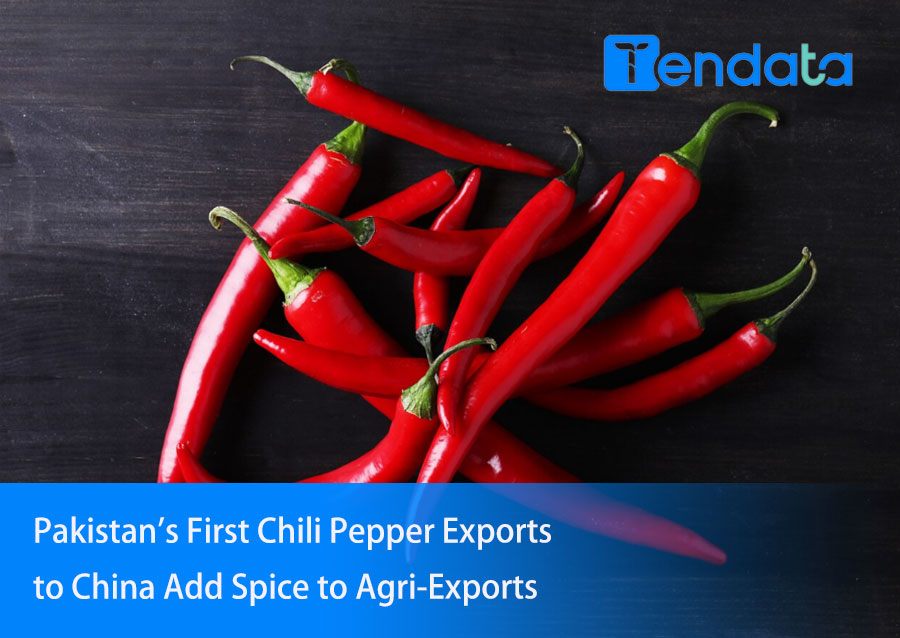 Trade Trends News
Trade Trends News
 21-12-2023
21-12-2023

Pakistan on Tuesday announced a major breakthrough in its agro-exports to China with its first shipment of dried chili peppers.
About 150,000 acres (60,700 hectares) of Pakistani farms produce 143,000 tons of chili annually, making the country the world's fourth-largest chili producer. The southern province of Sindh produces 126 million tons of chili, accounting for about 88 percent of the country's total chili production.
Official data show that Pakistan's exports of dried red chili have declined over the past few years, mainly due to contamination during the drying process. According to the Trade Development Authority of Pakistan (TDAP), Pakistan exported 2,751 tons of dried red chillies in 2019, falling to 1,665 tons in 2022.
"This significant achievement has been made possible through the outstanding efforts of Litong Foods Limited (a leading Chinese food company) and marks the beginning of a new era in trade relations between Pakistan and China," Commerce Minister Dr. Gohaz Ejaz was quoted as saying by his office in a statement, which did not specify the shipment's dimensions.
"I am pleased to announce that the first shipment of dried chili peppers is on its way to China. This achievement not only showcases the capabilities of our exporters but also highlights the potential for further cooperation between Pakistani and Chinese companies."
The minister said Pakistan's exports of products to China had the potential to "exceed $20 billion in the next few years."
"However, achieving this ambitious target will require concerted efforts by Pakistan's agricultural exporters ...... to adhere to high quality standards, improve productivity and implement effective marketing strategies to meet the expectations of the Chinese market."
He added that exports could surge if Pakistani companies work to meet international standards set by Chinese authorities. Last month, Arab News reported on an innovative initiative in Sindh, where more than a dozen growers in a region highly vulnerable to climate change have successfully used modern methods and machines to protect their chili crops from fungal contamination.
"The minister ...... urged the adoption of new technologies such as hybrid seeds and openness to corporate agriculture," the Commerce Ministry statement added.
Category
Leave Message for Demo Request or Questions


 T-info
T-info T-discovery
T-discovery

 My
Tendata
My
Tendata Market Analysis
Market Analysis Customer
Development
Customer
Development Competitor
Monitoring
Competitor
Monitoring Customer Relationship
Customer Relationship





































































































































